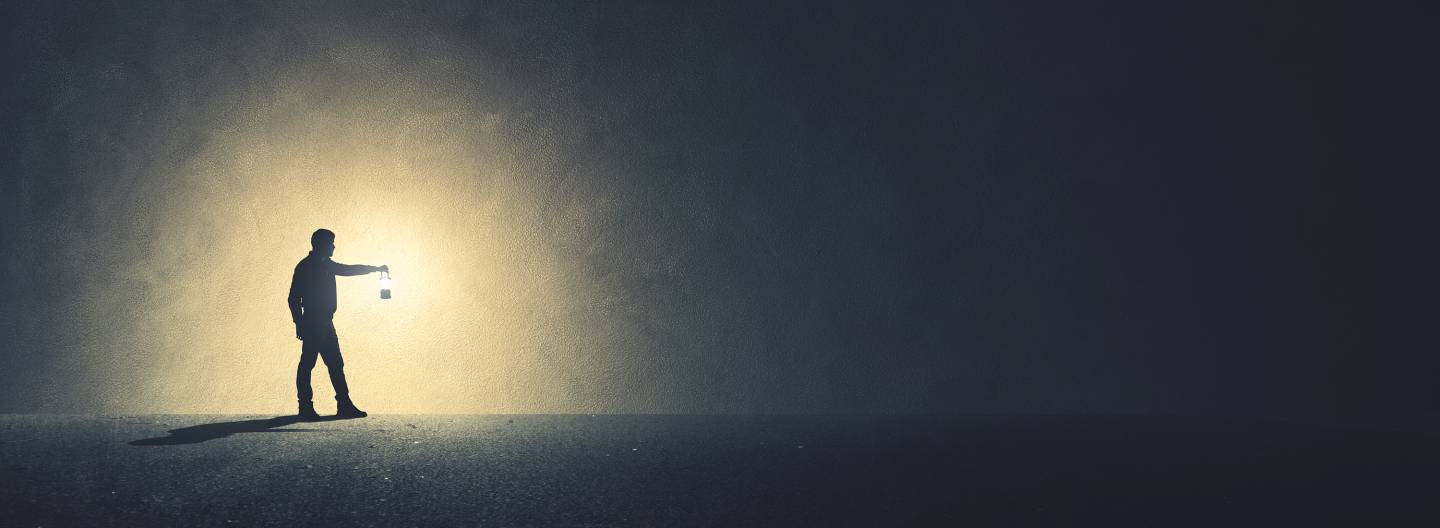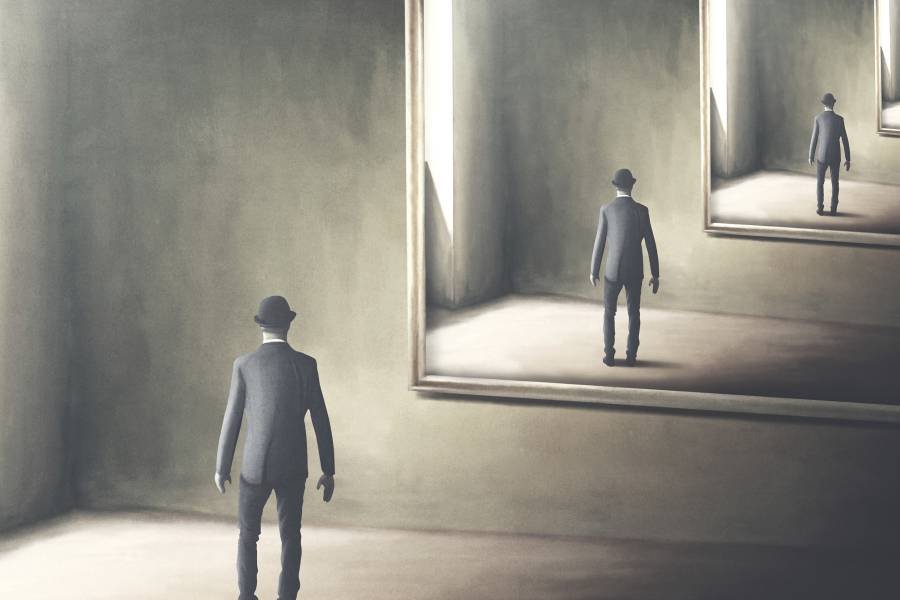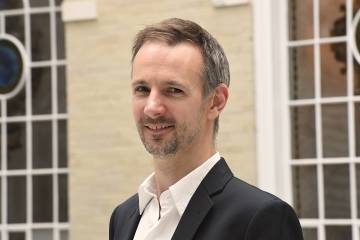In 1962, a 23-year-old named Michel Siffre made camp in a damp, ice-cold cavern in the French Alps. Deep underground, Siffre's only illumination came from a single lightbulb. By it, Siffre kept a diary and, presumably inspired by the famous allegory of the cave, read Plato. He barely moved. His body temperature fell to 93º F. For two months he lived alone, constantly imperiled by debris falling from the glacier abutting his tent. Siffre was a geologist, but his best-known legacy concerns the effects of isolation on our sense of time. Without sunlight or clocks to track time, Siffre nonetheless kept a regular circadian cycle, showing humans have an internal biological clock. Curiously, however, without external cues, Siffre's clock ran 30 minutes slow. After a few weeks, he was waking up at dusk and going to bed at dawn. Siffre also performed a simple timing task when he telephoned up to the surface. He would try to count 120 seconds. It took him five minutes. Interned in the depths, five minutes had come to feel like two.
As we emerge from the latest coronavirus wave, Siffre's sojourn may feel uncomfortably close to home. COVID-19 has affected us all in very different ways. But whether your experience involved sheltering alone in a small apartment, caring for your children, or fighting on the front line, you would not be alone if you felt that the pandemic had radically affected your sense of time. Some recall time dragging on and on. Others that the weeks and months sped past. Paradoxically, still others feel that time both crawled and flew. As for Siffre, after 60 days forlorn in his glacial cavern, he was stunned to learn his time was up. In his mind, it was only day 35. Somehow, 25 days had gone missing. What light does the science of time perception have to shine on these experiences?
For many of us, the pandemic has been a lesson in tedium. Stuck inside, venturing out only rarely, the monotony was palpable. Lack of change and novelty have long been known to affect our sense of how much time has passed. As the pioneering psychologist William James wrote: "Many objects, events, changes … immediately widen the view as we look back. Emptiness, monotony, familiarity, make it shrivel up." This happens because our perception of time depends on the memories we store and retrieve. Think of memory like a diary and your sense of elapsed time as measured by the pages needed to record your life. At the end of a week with little of interest to report, time can seem to have vanished. Tellingly, though, if you focus on how much has changed in the wider world, it can feel as if an age has elapsed since first reports of a new virus emerged in early 2020.
Although it often feels short in retrospect, tedium can feel incredibly slow in passing. One reason is that when bored, we start paying more attention to time. If you are constantly checking your watch on a night out, it probably doesn't bode well for the food or company. In contrast, confined at home for yet another day, you may well have started paying more attention to all the changes which mark the passing of time: the increasing stiffness in your back, the growing threat of rain, your waxing hunger, the way the light lengthens through the day. Waiting for something—anything—to happen, your day can become like the proverbial watched pot that never boils. The more you watch, the longer it seems to take.
Those on the front line of the pandemic may have had the opposite experience. Doctors and nurses whose shifts have been spent triaging and treating patients may have found that their time passed extremely quickly. They had no time to watch the clock. Even so, at the end of the day, having dealt with more in 12 hours than in a normal week, they may have felt as if a huge expanse of time had passed. Their COVID-diary, if they had time and energy to keep one, would fill pages.

Image credit: Getty Images / francescoch
The pandemic has, of course, brought stress, anxiety, and fear, even for those at home. Such negative emotions also have powerful effects on time perception. Experiments have repeatedly shown that stressful and emotional events appear to last longer than neutral ones. In one study by Jonas Langer and colleagues from 1961, subjects had to estimate a five-second interval while being moved toward or away from a precipice. Those being moved toward the edge judged the interval over nearly a second earlier than those being moved away. Fear caused a 20% "slowing of time."
If you've ever been in a car accident, or fallen while climbing, you may have experienced this effect dramatically. Time can almost appear to stop. One explanation is that subjective duration is measured relative to our mental processing. Our minds run faster when we are stressed or scared, so events in the world seem slowed down. More mental activity has occurred during the same objective period of time, making it seem stretched out. This is consistent with another common report from accident victims: their amazement at how fast they could think. The pandemic is, of course, not a sudden accident. But even so, its chronic stresses may significantly impact our perception of time when compared to ordinary life.
A final major factor is our loss of routine. As stay-at-home orders took force, the structure of everyday life—its commutes and gym classes, school drop-offs and religious services, Friday nights out and Sunday afternoons at the football game—suddenly vanished. Our days all became alike. Weeks and weekends blurred. And although lockdown orders have long since lifted, normal life has been slow to return. Such loss of routine makes it much harder to anchor ourselves in time. Studies show that predictable and regular 'temporal landmarks' play a crucial role in organizing our autobiographical memories. This shows up in "calendar effects," such as the fact that students are quicker and better at remembering what happened at the beginnings and ends of school semesters than during periods in between. Experiments also show that we judge how far ago something happened partly based on the number of accessible and related intervening "event markers." The loss of these cues may affect our ability to recall what we have done lately, and likewise how long ago this all began.
Looking forward, the pandemic itself may become a major temporal milestone by which we structure our lives' narratives: before Corona, during, after. That said, studies of people who have lived through wars, natural disasters, and terrorist attacks suggest that even horrific historical events only come to organize our individual autobiographical memories if they profoundly and permanently alter the way we live. Whether COVID-19 will have such an impact, only time will tell.
As for the nearer future, Siffre's story gives us reason for both optimism and concern. When Siffre did emerge into the light, he was not much worse for wear. Indeed, 10 years later, he pitched camp a second time for a record-breaking seven months, though now in a mercifully warmer cave in Texas. Again, he lost track of time though his sleep cycle varied much more dramatically. But his second stay also hit him much harder psychologically. Two months in, he lost all motivation, and succumbed to severe depression, living, as he describes, like a prisoner in hell. Let us all hope that if another wave of the pandemic engulfs us, it is briefer and easier to bear.
Ian Phillips is a Bloomberg Distinguished Professor of philosophy and brain sciences at Johns Hopkins University.










